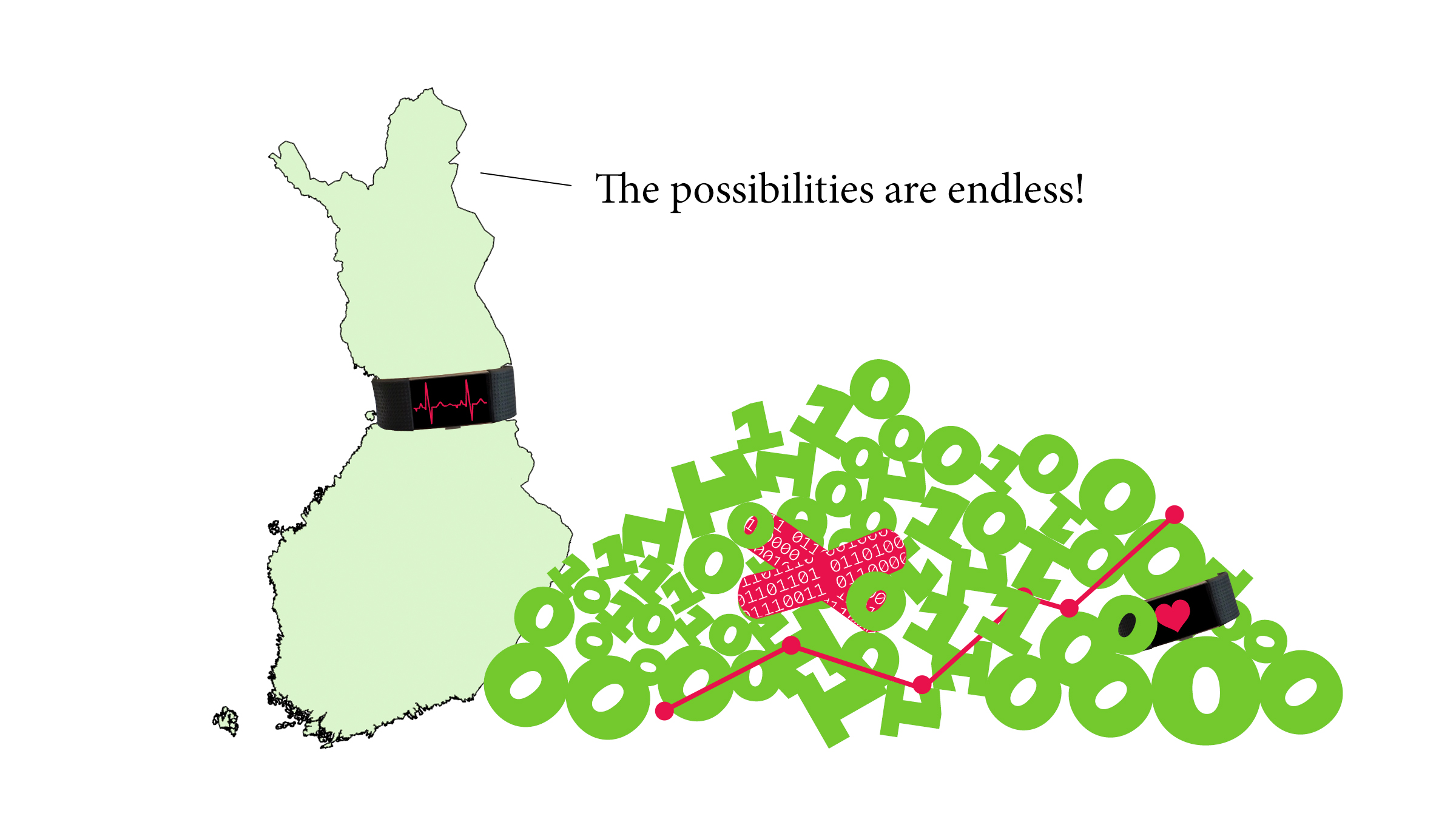All the major revolutions in human history started somewhere.
For example, writing was developed long ago in Mesopotamia and the first important steps towards an industrial revolution were taken in Great Britain.
But who would have thought that data-related services, business and our everyday lives would be revolutionised in far-away Finland, of all places?
World history shows that one step in the right direction can lead to a lot of other things.
When several, apparently unconnected, developments converge, the result can be upheaval that is larger than the sum of its parts, affecting the lives of people, research and even the services we use, and, consequently, human health, for example.
A new age looms, with digitisation connecting with experts and enthusiasts.
In Finland right now we are at the point where different development trends are meeting. The most significant common factor on the path towards the next major revolution we face is data.
The Finnish tradition of establishing, maintaining and developing data registers goes back to the 1600s, when parish records were first kept.
When this old custom is combined with the opportunities afforded by digitisation, the positive approach Finns have towards research and technology, and the recently updated legislation enabling the data economy, Finland and the Finnish people can lead the way as Europe gradually, or even suddenly, switches to a fair data economy.
The foundations for a fair data economy already exist
The fair data economy is a natural continuation of the former projects promoting e-services that were undertaken in Finland.
For example, the Data Exchange Layer is already speeding up the transfer of data from one system to another in Finland and in Estonia, the country where the system originated, and a system unique to just these two countries.
In May 2019 Finland also saw the entry into force of the Act on the Secondary Use of Health and Social Data, according to which the information on social welfare and healthcare held in registers may be used for purposes of statistics, research, education, knowledge management, control and supervision conducted by authorities, and development and innovation activity.
The new law will make the work of researchers and service developers more effective, as the business of acquiring a permit will take place through a one-stop-shop principle and it will be possible to use data from more than one source more readily than before.
The past meets the future at the HIMSS and Health 2.0 European Conference in Helsinki in June
The think-and-do-tank Sitra is one of many organisations in Finland that for the last 10 years or more have drafted vision statements on new, human-driven approaches to using data and trialled and developed these visions in a practical context through a number of pilot projects.
This work will next be showcased at Europe’s biggest health technology event, the HIMSS and Health 2.0 European Conference in Helsinki in June 2019. Sitra’s stand at the event will be called Future Lounge, which will feature both aspects of work on the future: vision and accomplishment.
It is Sitra’s opinion that the future of healthcare relies on the ethical use of data, allowing the transition from system-centred medical care to the human-oriented and individualised promotion of well-being.
Here you will discover our views on what the future of the fair data economy will look like and hear how this future scenario is being built right now in practice – and how you can be involved in this endeavour!
It´s going to get a lot more personal!


















Recommended
Have some more.